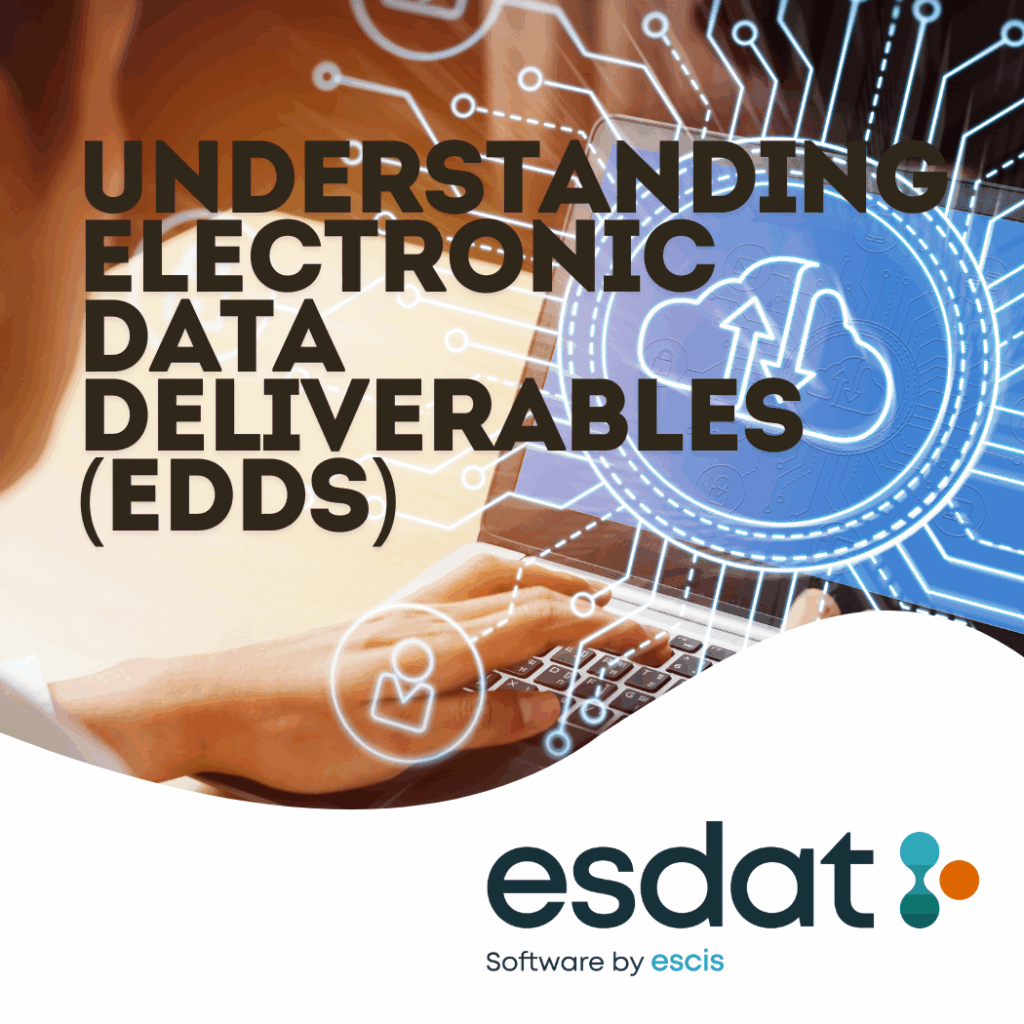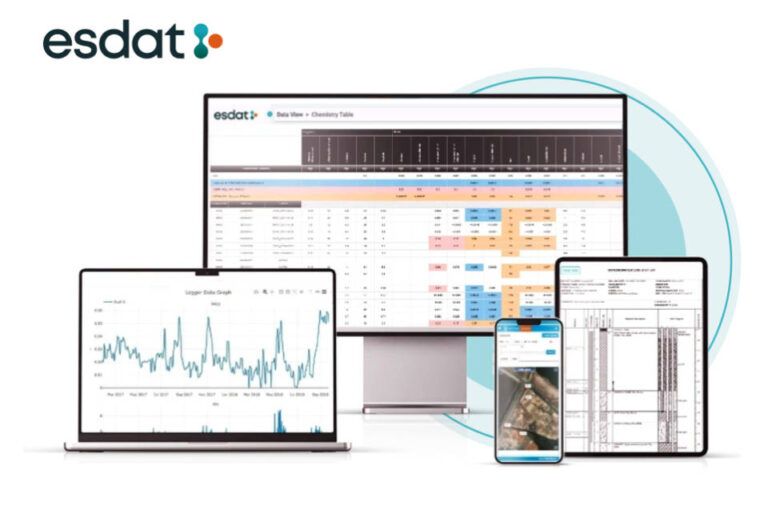An Electronic Data Deliverables (EDD) is a structured digital file, such as a spreadsheet, database table, or XML document, used to transmit environmental data electronically between parties. EDDs are designed in specific formats to ensure data can be efficiently imported into environmental data management systems (EDMS) without manual re-entry or transcription errors. These files may contain laboratory analytical results, field sampling data, site maps, quality assurance details, and other project information.
Key Takeaways: Understanding Electronic Data Deliverables (EDDs)
- What EDDs Are: Structured digital files (e.g., spreadsheets, XML) used to transfer environmental data efficiently and accurately.
- Why They Matter: EDDs eliminate manual entry, reduce errors, ensure standardization, and support regulatory compliance and data sharing.
- How ESdat Supports EDDs: Integrates with global labs, uses the ELDF standard, performs automated validation, and enables seamless data visualization and reporting.
- Benefits for Professionals: Saves time, improves data quality, ensures compliance, and centralizes all types of environmental data in one system.
EDDs streamline environmental data workflows, and ESdat makes managing them easy, accurate, and regulation-ready.
Why Are Electronic Data Deliverables EDDs Used?
- Efficiency and Accuracy: EDDs eliminate manual data entry, reducing errors and speeding up the transfer of large, complex datasets from laboratories or field teams to consultants, clients, or regulatory agencies.
- Standardization: By adhering to predefined formats, EDDs ensure that all required data fields are consistently populated, which is crucial for regulatory compliance and effective data analysis.
- Data Integration: EDDs allow seamless new data integration into existing environmental databases, supporting robust analysis, visualization, and reporting.
- Regulatory Compliance: Many environmental programs and agencies require EDDs to facilitate timely and accurate data submissions for site investigations, monitoring, and compliance reporting.
- Enhanced Data Sharing: Electronic formats make it easier to share, store, and retrieve data for concurrent or future use, supporting better decision-making and communication among stakeholders.

ESdat and EDDs: Streamlining Environmental Data Management
ESdat is a leading environmental data management system used by consultants, industry, and government to manage, analyze, and report on a wide variety of environmental data. One of ESdat’s core strengths is its robust support for EDDs, particularly for importing laboratory data.
How ESdat Supports EDDs
- Global Laboratory Integration: ESdat connects with a global network of accredited laboratories, allowing lab reports to be automatically uploaded into the system using standardized EDD formats.
- Electronic Lab Data Format (ELDF): ESdat uses the ELDF specification for laboratory data, which includes comprehensive details about samples, results, and quality assurance. This ensures data is validated and ready for direct import, minimizing delays and errors.
- Automated Data Validation: Upon import, ESdat checks data for completeness, correct formatting, and compliance with regulatory guidelines. This automated validation streamlines workflows and supports high data quality.
- Seamless Data Analysis and Reporting: Once imported, users can visualize trends, compare results against environmental standards, and generate tables, graphs, and maps- all within ESdat.
- Support for Additional Laboratories: If a laboratory is not yet integrated, ESdat’s support team assists with setup and troubleshooting at no extra cost, ensuring broad compatibility and ease of use.
Key Benefits for Environmental Professionals
- Time Savings: Automated EDD import eliminates manual data handling, freeing up time for analysis and interpretation.
- Data Quality: Built-in validation and quality checks ensure only accurate, reliable data enters the system.
- Regulatory Readiness: Pre-loaded regulatory guidelines and exceedance checks help ensure compliance and simplify reporting.
- Comprehensive Data Management: ESdat handles lab data, field data, logger data, and more, providing a centralized platform for all environmental information.
In summary, EDDs are essential for efficient, accurate, and compliant environmental data management, and ESdat’s advanced EDD integration empowers consultants and organizations to manage their data confidently and efficiently.
References:
- https://esdat.net/laboratory-integration/
- https://support.esdat.net/Lab_Specifications.aspx
- https://environmentalstandards.info/esdat-a-comprehensive-solution-for-environmental-data-management/
- https://www.epa.gov/sites/default/files/2020-10/documents/r5basicmanualforelectronicdata_oct2020.pdf
- https://esdat.net/laboratory-specifications/
- https://esdat.net/esdat-features/
- https://help.esdat.net/en/article/data-migration-manager-importing
- https://www.epa.gov/clp/staged-electronic-data-deliverable-sedd
Related Articles to Electronic Data Deliverable
ESdat: A Comprehensive Solution for Environmental Data Management
99% of Environmental Lab Reports Loaded Without Error Using ESdat
Enhancing Environmental Data Collection with ESdat Field Programs
What data types are used in environmental data management?






